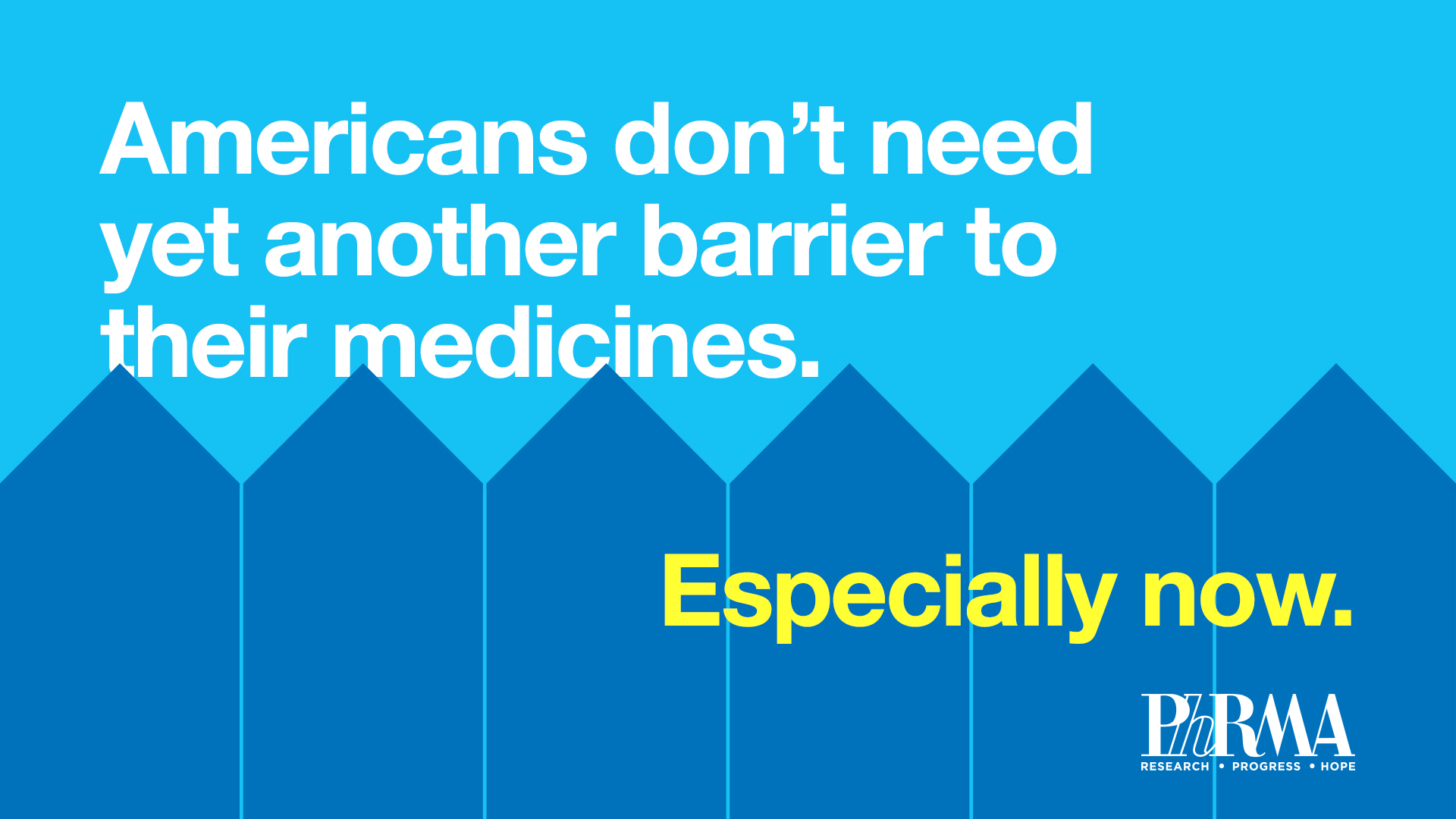| | | | | | | Presented By PhRMA | | | | Vitals | | By Caitlin Owens ·May 12, 2021 | | Good morning. Today's word count is 921, or a 3-minute read. | | | | | | 1 big thing: Employees grapple with re-entry as jobs call them back |  | | | Illustration: Sarah Grillo/Axios | | | | Pandemic-related anxieties are entering a new phase as more employers start to call vaccinated workers back into their offices, Axios' Tina Reed reports. Why it matters: Some employees simply don't want to go back to the office; some are desperate to. Some are struggling to rearrange their routines yet again; some don't have that flexibility. - And everyone — employers and employees alike — is figuring out on the fly how to make it work.
Driving the news: "More and more employers are saying: 'If you've been vaccinated and we have all the safety precautions in place, it's time to come back to work.' That's causing a lot of anxiety," said Lucy McBride, a primary care physician in Washington, D.C. - "There's also the anxiety of, 'I had to make all these adjustments to my life because my kids weren't in school," said Georgia Gaveras, co-founder and chief psychiatrist of Talkiatry, a telepsychiatry company. "Now it's like, 'What do I do now if I have to go back to work?'"
Many Americans are still easing into the idea of being in close quarters with other people again, even after being vaccinated. But many workers also may be suffering mental distress from over a year of isolation. - Heading back to the office could bring unique stressors for women, who are more likely to shoulder the burden of parenting and household chores at the same time.
The intrigue: Plenty of workers may be distressed because they've rearranged their lives around their new reality — or they've realized they simply like remote work. Go deeper. |     | | | | | | 2. Novavax behind on COVID vaccine targets |  | | | Illustration: Aïda Amer/Axios | | | | Novavax won't be able to get its COVID-19 vaccine authorized until July, and is also behind its manufacturing targets, the New York Times reports. - "I don't see a lot going well for them at this point," Rob Smith, the managing director of Capital Alpha Partners, told NYT.
Why it matters: This is another big setback for the rest of the world, which is still desperate for doses that keep slipping farther out of reach, Axios' Sam Baker writes. - AstraZeneca has run into both regulatory and production delays. Johnson & Johnson lost a trove of doses to errors at a Baltimore manufacturing plant. Novavax is the next one in line, and it has reported efficacy rates of 90%.
- The company has committed over 1 billion doses to the developing world, and delays getting those doses out the door will make it that much harder to arrest the pandemic.
Details: Novavax's contract with Operation Warp Speed called for the company to deliver 110 million doses this year, per NYT, but the company now says it may not be able to deliver that supply until early next year. |     | | | | | | 3. New weight-loss drug may fight obesity stigma |  | | | Illustration: Eniola Odetunde/Axios | | | | A new type of obesity drug may help doctors, patients and the public understand that obesity is a medical condition that needs chronic treatment, the Times reports. Why it matters: People with obesity have been highly stigmatized and experience poor treatment and bias in health care settings, despite scientific evidence showing the strong influence of genetic and environmental factors over individual body weights. How it works: Semaglutide, which is a form of incretin — a naturally occurring hormone in the body — was given to clinical trial participants, Axios' Marisa Fernandez writes. - It slows stomach emptying, regulates insulin and decreases appetite, with mostly mild to moderate short-term gastrointestinal side effects, per the Times.
- On average, participants who took it once a week for 68-weeks experienced 15% weight loss, March results in the New England Journal of Medicine show.
- One-third lost 20% or more of their body weight in the study, similar to the amount lost with lap-band bariatric surgery.
- Current obesity drugs lead to an average weight loss of only 5% to 10%, NYT notes.
Separately, Eli Lilly has a similar drug called tirzepatide, which combines two incretins. The company said it is testing the drug against semaglutide and hopes it will prove even more powerful. |     | | | | | | A message from PhRMA | | Americans don't need another barrier to their medicines | | |  | | | | We have to lower what patients pay for their medicines. We also have to make sure they are getting the medicines they need. The challenge: H.R.3 forces a choice between one or the other. There's a way to do both, but H.R.3 isn't it. Get the facts. | | | | | | 4. "Cost of dying" in America nears $20K |  If anything is certain in life, it's death and taxes. And in some states, the former is a heck of a lot more expensive, according to data released by Self Financial. State of play: Using 2020 figures from the National Funeral Directors Association and the CDC, the group looked at the average 'cost of dying' across the U.S. based on the price of end-of-life care, funerals and cremations, Tina reports. Catch up quick: The average cost of dying in the U.S. is about $19,566. - Hawaii was the priciest state, with end-of-life medical costs topping $23,073, the average funeral adding up to $14,478 and the average cost of cremation coming in at $12,095. All that comes to a whopping average cost of dying of $36,124.
- Mississippi is the cheapest place to die, with an average cost of about $15,516.
The big picture: CDC figures show the cost of funerals and end-of-life care jumped to $63.8 billion in 2020, up 14.3% from a total of $55.8 billion in 2019, the report points out. - When taking all COVID-19 related deaths into consideration, they estimate the COVID-19 pandemic now accounts for $8.1 billion in household costs through April 2021.
|     | | | | | | 5. Catch up quick |  | | | Illustration: Aïda Amer/Axios | | | | Doctors in India have become alarmed by what they believe is a COVID-related spike in new cases of a malady known as "black fungus," a rare infection called mucormycosis which can cause blindness and death, the Washington Post reports. NIAID director Anthony Fauci and Sen. Rand Paul clashed again during a Senate hearing on Tuesday, this time over questions of the origins of COVID-19 and use of NIH funding at the Wuhan Institute of Virology, Axios' Zachary Basu reports. Ride sharing companies Uber and Lyft both agreed to offer free rides to and from vaccine sites through the Fourth of July in a partnership with the White House, the Wall Street Journal reported. Summer camps which serve kids with medical needs will continue to take extra precautions to protect their campers this year, with some remaining virtual while others ease back to limited in-person activities, Kaiser Health News reports. |     | | | | | | A message from PhRMA | | Congress: Here's why H.R.3 isn't the solution to lower cost drugs | | | | Americans don't need another barrier to their medicines. We have to lower what patients pay for their medicines. We also have to make sure they are getting the medicines they need. H.R.3 forces a choice between one or the other. There's a way to do both, but H.R.3 isn't it. Get the facts. | | | | | | Axios thanks our partners for supporting our newsletters.
Sponsorship has no influence on editorial content. Axios, 3100 Clarendon Blvd, Suite 1300, Arlington VA 22201 | | | You received this email because you signed up for newsletters from Axios.
Change your preferences or unsubscribe here. | | | Was this email forwarded to you?
Sign up now to get Axios in your inbox. | | | | Follow Axios on social media:    | | | | | |









No comments:
Post a Comment